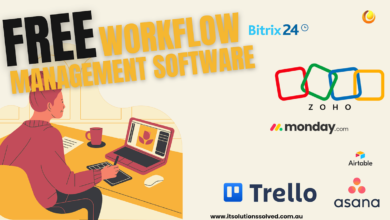Healthcare CRM Software Development: Revolutionizing Patient Care
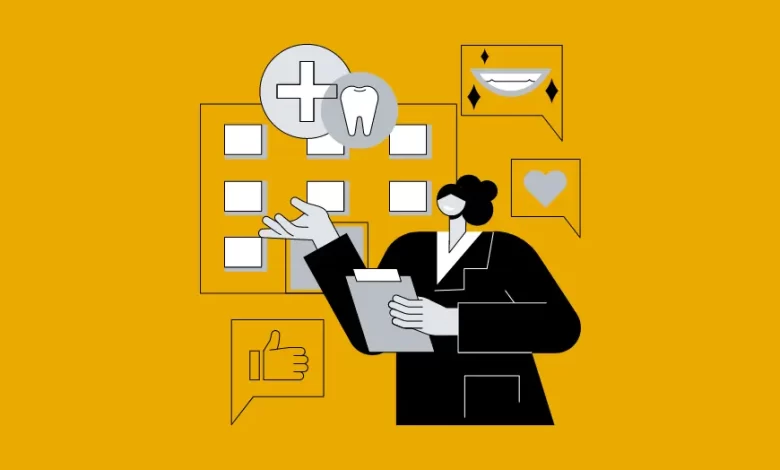
In the rapidly evolving healthcare ecosystem, technology plays a pivotal role in transforming patient care and operational efficiency. At the heart of this digital transformation is the integration of Customer Relationship Management (CRM) software, a tool that is becoming increasingly indispensable in the healthcare sector.
According to Grand View Research, the healthcare CRM market was valued at $17.9 billion in 2023 and is expected to reach $30.7 billion in 2030, witnessing a CAGR of 8.0% from 2023 to 2030. This impressive growth rate justifies the healthcare industry’s recognition of CRM technology as a critical asset that stands out for its ability to streamline patient management, improve communication with partners, and facilitate more efficient healthcare delivery.
Simply put, the rise of healthcare CRM software development signifies a shift towards more patient-focused healthcare models, where technology not only optimizes administrative tasks but also enriches the patient experience.
This comprehensive guide will help you understand the healthcare CRM software development process, its benefits, key features, and development costs. Processing the benefits of Healthcare CRM allows medical organizations to make smart choices while allowing them to invest in solutions that boost productivity, improve patient satisfaction, and enhance overall patient care.
What is Healthcare CRM Software?
Healthcare organizations use CRM (Customer Relationship Management) software to manage interactions with patients, healthcare providers, partners, and other stakeholders. The software aims to streamline and enhance the various interactions a healthcare organization has with patients, providers, partners, and other key stakeholders.
One key aspect of healthcare CRM software is providing data-driven insights. The software generates reports and analytics to help healthcare organizations better understand patient behavior, how providers are performing, and how efficient their operations are.
This data helps organizations make decisions to improve patient outcomes and operational effectiveness. Additionally, CRM in the hospital industry often automates tasks like scheduling appointments, billing, and contacting patients and improves overall efficiency and productivity for staff.
For instance, Cleveland Clinic, a well-known healthcare institution, successfully integrated a healthcare CRM system to elevate patient engagement and care coordination. This initiative enabled the clinic to optimize communication channels, leading to the delivery of prompt appointment reminders, follow-up messages, and tailored healthcare guidance to patients.
Consequently, the healthcare organization was able to witness enhancements in operational efficiency, elevated patient satisfaction ratings, and a decrease in no-show occurrences, underscoring the pivotal role of CRM in refining healthcare results.
Multiple Types of Healthcare CRM Available for Businesses
The medical industry has observed a rise in the adoption of various types of CRM systems. Each is designed to tackle specific challenges and requirements in the sector. Let’s examine the different categories of Healthcare CRM solutions.
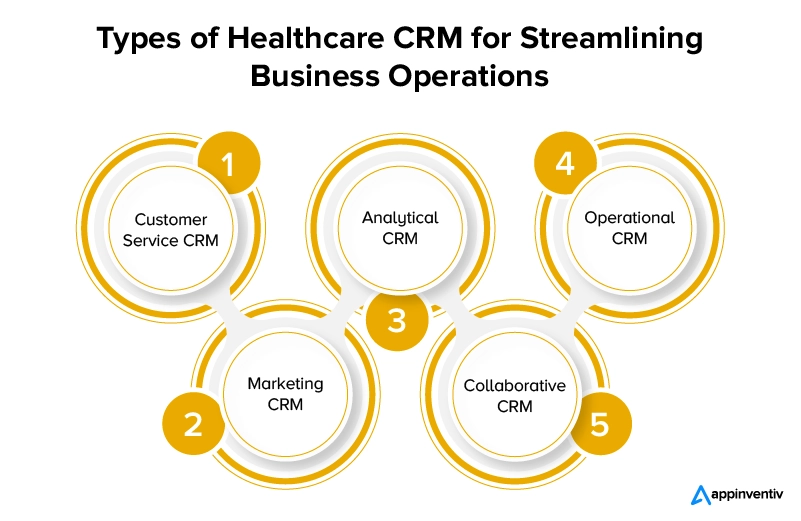
Customer Service CRM
Customer service CRM tools enhance the healthcare experience by offering efficient, tailored support. This includes systems for service tickets, live chats, and managing feedback. Promptly addressing patient inquiries, complaints, and comments helps build solid relationships and boost satisfaction levels.
Marketing CRM
Marketing CRM software enables healthcare organizations to attract, engage, and retain patients through targeted campaigns and communication strategies. It allows segmenting patient populations, crafting personalized marketing messages, and tracking campaign performance. This aids in identifying effective marketing channels, refining messaging, and maximizing investment impact.
Analytical CRM
Analytical CRM software enhances healthcare providers’ use of data analysis and business intelligence tools to gain valuable insights into patient behavior, treatment outcomes, and operational efficiency. By analyzing this information, healthcare associations can determine patterns, foresee patient requirements, and streamline asset distribution. This prompts more educated, dynamic and designated interventions.
Collaborative CRM
A Collaborative CRM system functions efficiently, promoting good communication and information flow in a medical organization. It also extends to external associates, including patients, suppliers, and allies. This allows constant teamwork on patient care strategies, scheduling appointments, and coordinating treatments. Patient experience is generally elevated through improved care coordination.
[Also Read: How Much Does it Cost to Develop a Doctor Appointment App Like ZocDoc?]
Operational CRM
Operational CRM tools aim to streamline and automate various administrative functions in a healthcare organization. They handle scheduling appointments, registering patients, managing bills, and keeping track of inventory. By taking over these regular tasks and workflow, this CRM solution frees up healthcare personnel from time-consuming administrative duties. It allows them to focus on providing top-quality patient care and ensuring the smooth running of daily operations.
Benefits of CRM in Healthcare
Healthcare organizations rely on CRM to streamline operations, enhance patient experiences, achieve superior outcomes, and more. Let us explore the remarkable benefits a robust Healthcare CRM solution offers to businesses.
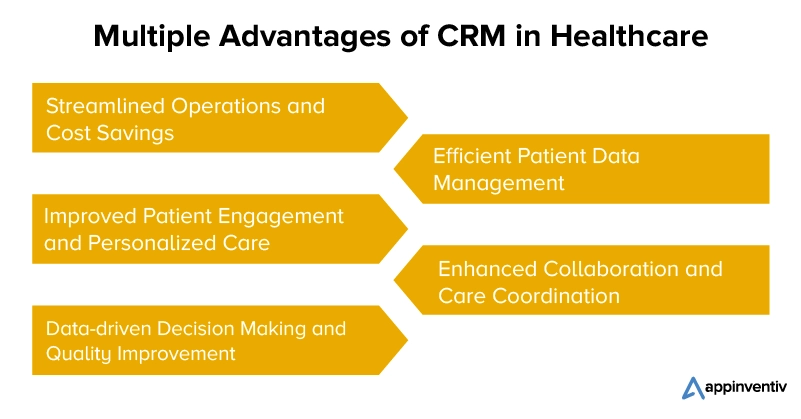
Streamlined Operations and Cost Savings
Healthcare CRM software benefits go beyond helping patients; it significantly enhances how healthcare organizations work. Healthcare CRM features like automated appointment scheduling, referral management, and inventory tracking reduce staff workload and minimize errors.
This frees up valuable staff time to focus on patient care. By integrating with Electronic Health Record (EHR) systems and other healthcare IT infrastructure, CRM solutions allow seamless data exchange and cross-departmental collaboration. This further optimizes workflows and decision-making.
Ultimately, these operational improvements convert into cost savings. This contributes to the long-term financial sustainability of healthcare providers. Additionally, increased efficiency and reduced errors can lead to better resource utilization and lower the overall cost of healthcare delivery.
Efficient Patient Data Management
Effective patient data management is essential to providing quality healthcare. CRM software excels at centralizing patient information—medical histories, treatment regimens, and billing details—into a single, organized database.
This comprehensive view ensures healthcare providers have access to accurate, updated data, enhancing patient safety, care coordination, and clinical decision-making. Moreover, CRM’s secure storage and access controls aid compliance with stringent regulations like HIPAA, safeguarding sensitive patient data.
Improved Patient Engagement and Personalized Care
Engaging patients and delivering personalized care are key to driving positive health outcomes. CRM software boasts features to enrich patient interactions, from appointment reminders to telehealth services and secure patient portals. These capabilities empower patients, fostering active healthcare participation, stronger provider relationships, and better treatment adherence.
[Also Read: 7 Trends Shaping the Future of Telemedicine in Healthcare]
Additionally, CRM’s data analytics capability enables providers to tailor communications and care plans to individual preferences, demographics, and medical histories – delivering truly personalized, meaningful patient experiences. This personalization can boost satisfaction, loyalty, and ultimately, overall health.
Enhanced Collaboration and Care Coordination
Healthcare CRM software boosts collaboration among healthcare staff, doctors, and all involved in patient care. With its features, you can share patient information, send secure messages, and assign tasks. This lets teams work together on treatment plans, share updates, and give continued care. Better teamwork leads to more coordinated care, avoiding repeated work, and a complete approach to assisting patients.
Data-driven Decision Making and Quality Improvement
Healthcare CRM tools give businesses substantial ways to analyze and understand business data. They provide up-to-the-date knowledge and valuable data. With these number-centric facts, healthcare stakeholders can make smarter choices. Additionally, they also facilitate identifying opportunities for enhancing care and demonstrating outcomes to payers and regulatory bodies.
CRM in healthcare can also use data analysis to anticipate future needs and prevent issues by learning from past patterns. It makes constant changes and improvements in healthcare a reality. Using facts and figures, healthcare groups can make the best use of their resources, make patient outcomes better, and raise the overall level of care.
[Also Read: How to successfully create a data-driven culture in your organization?]
Improved Provider Relationship Management
CRM in healthcare also helps manage relationships with healthcare providers, doctors, specialists, and other medical experts. CRM solutions can maintain detailed profiles, handle referrals, and simplify communication. This allows healthcare organizations to strengthen partnerships with providers. Enhanced provider relations improve care coordination, boost patient referrals, and aid in recruiting and retaining providers effectively.
Competitive Advantage and Market Positioning
Developing a robust CRM gives healthcare organizations a significant competitive advantage. By providing enhanced patient experiences, improved efficiency, and data-driven decision capabilities, organizations using CRM position themselves and emerge as industry leaders. This can attract new patients, increase patient loyalty, and ensure a strong market presence overall.
Must-Have Features of a Healthcare CRM Software
CRM software for the healthcare industry is crucial for better care, smoother operations, and legal compliance. When looking at options, pay attention to features that could transform healthcare and provide top-notch patient experiences. Let’s look at various features of CRM healthcare software development in detail below.
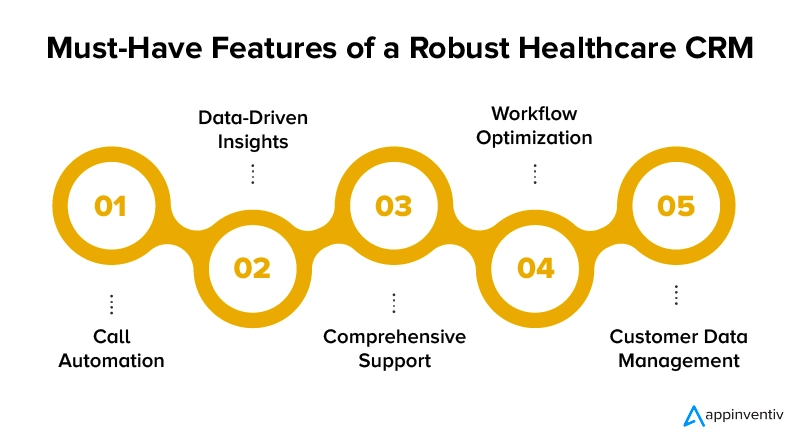
1. Call Automation: Streamlining Communication
Efficient patient-provider communication is crucial for quality care. CRM software with advanced call capabilities can revolutionize this aspect of healthcare operations with these features:
Advanced algorithms intelligently direct calls based on the specific needs of patients, ensuring they are quickly connected to the right department or healthcare professional. Smart routing reduces wait times, minimizes transfers, and prioritizes urgent medical emergencies, providing prompt attention and timely intervention.
Leveraging natural language processing (NLP), healthcare CRM equips conversation AI-based chatbots and virtual assistants to interact with patients in real time. This facilitates answering common queries, scheduling appointments, and providing essential medical advice. These conversational features enhance accessibility and convenience for patients. They also alleviate workload on support staff, allowing them to focus on complex patient needs.
HIPAA compliance assures the highest standards of patient confidentiality and privacy. All voice and messaging interactions must comply with HIPAA regulations. This includes encryption, secure data storage, and strict access controls. These measures safeguard sensitive information. Furthermore, they mitigate the risk of data breaches or regulatory penalties.
2. Data-Driven Insights: Developing Strategic Decisions
Analytics capabilities within healthcare CRM software empower data-driven decision-making, quality enhancement, and compliance. Core features include:
Healthcare leaders get instant access to analytics dashboards. This allows them to quickly track critical metrics, spot trends, and address issues. Role-based controls ensure stakeholders see only relevant data.
Leveraging machine learning, predictive analytics forecast patient volumes, anticipate healthcare needs, and optimize resource allocation. These features support population health initiatives by identifying high-risk groups and guiding targeted interventions.
Businesses can effortlessly generate compliant audit reports, adhering to regulations like Meaningful Use, MACRA/MIPS, and CMS quality programs. Detailed audit trails also promote transparency and accountability.
[Also Read: A Complete Guide to Healthcare Compliances]
By thoroughly analyzing patient feedback, clinical outcomes, and operational metrics, opportunities for process optimization, quality boosts, and innovative care delivery can be identified. Benchmarking against industry peers and standards further enables the adoption of leading practices for enhancing patient care and organizational performance.
3. Comprehensive Support: Prioritizing Patient Engagement
Delivering exceptional support enhances patient trust and satisfaction. CRM solutions in healthcare should offer a range of support features to promptly address patient needs and concerns. These include:
Provide seamless support across multiple communication channels, including phone, email, chat, and social media. This accommodates diverse patient preferences and improves accessibility. Seamless integration between channels ensures a consistent, personalized experience. Patients can reach out through their preferred method.
This helps in implementing robust mechanisms for collecting and analyzing patient feedback. Feedback management further enables healthcare organizations to gain valuable insights into the patient and stakeholders data. They can assess satisfaction levels and areas for improvement. Sentiment analysis algorithms prioritize and address urgent issues. They also inform strategic initiatives to enhance the overall patient experience.
Ensure round-the-clock support to promptly address patient inquiries and concerns to enhance trust and satisfaction. Support teams should be staffed across different time zones. Automated self-service options should be available for common inquiries outside business hours. Emergency support should be provided for urgent medical situations.
4. Workflow Optimization: Enhancing Operational Efficiency
Smart task management and streamlined processes are critical for healthcare organizations to deliver seamless patient care while focusing on quality. These features include:
Healthcare systems can introduce efficiency by automating repetitive processes like appointment bookings, medication refills, and insurance verifications. This enhances operational flow while providing quality time with patients.
Patients effortlessly schedule, reschedule, or cancel visits through online portals or mobile apps, reducing no-shows. Advanced algorithms factor in preferences, availability, and durations to minimize wait times.
[Also Read: How Much Does It Cost to Build a Medical Appointment App Like Doctolib?]
Tailored reminders notify patients of upcoming appointments, refills, and screenings, fostering adherence and improved outcomes. Targeted campaigns identify populations needing timely follow-ups and preventative interventions.
5. Customer Data Management: The Key to Personalized Care
Patient data management is the key to any successful healthcare CRM solution. Core features in this domain include:
Smooth connections with other healthcare systems like laboratory information, billing, and pharmacies enable a complete view of patient records. This integration means healthcare workers have full access to up-to-date data, aiding informed choices and coordinated care across various settings.
[Also Read: How Much Does It Cost to Build a Custom Medical Billing Software?]
Robust security, such as encryption, access controls, and regular audits, protects sensitive patient information following regulations like HIPAA. Data anonymization also shields privacy while permitting meaningful analysis and research.
Authorized healthcare staff can access patient details anywhere, whether at the hospital, clinic, or on the move. Cloud CRMs and mobile-friendly tools empower timely, coordinated care even with limited connectivity.
Healthcare CRM Software Development Process
Creating a CRM software for the healthcare industry is a structured process. Ensure that the CRM addresses healthcare organizations’ specific needs and requirements. Here are the key steps for healthcare CRM software development:
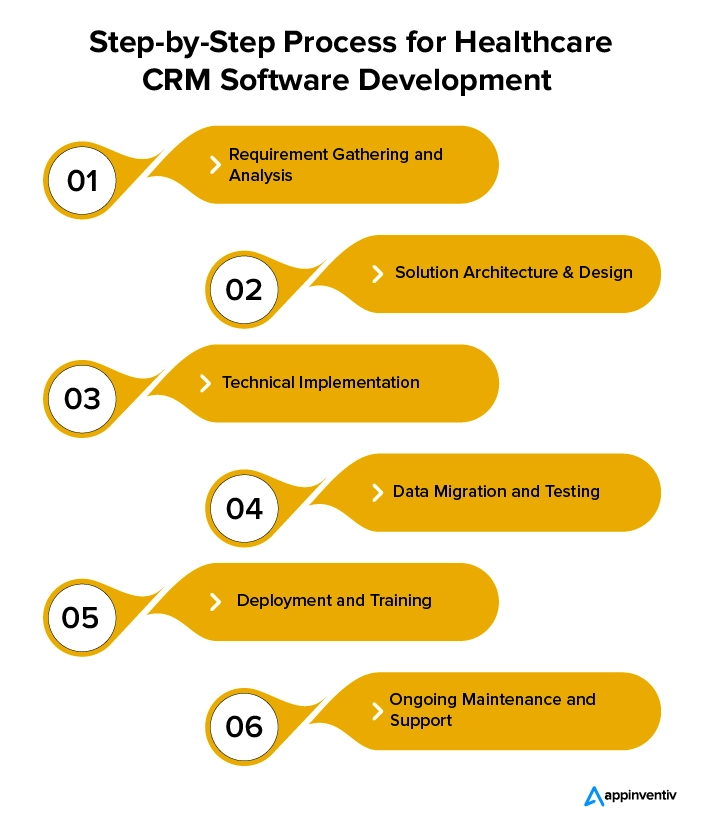
1. Requirement Gathering and Analysis
The first phase of CRM software development for healthcare involves gathering requirements. This means engaging key stakeholders like administrators, clinicians, and IT teams. The goal is to understand their pain points, goals, and CRM system requirements.
The hired healthcare CRM development team conducts interviews, workshops, and user research to identify essential features, functionalities, and necessary integrations. They also analyze industry practices, regulatory requirements like HIPAA, and healthcare technology trends to finalize the design of the CRM solution.
2. Solution Architecture and Design
Next phase of the healthcare CRM software development process is solution architecture and design. This stage defines the overall system architecture — front-end, back-end, database structure, and other healthcare IT system integration points. The user experience (UX) and user interface (UI) are carefully designed with the aim to make the CRM intuitive, efficient, and tailored for healthcare professionals and patients. Detailed wireframes, mockups, and prototypes validate the design with stakeholders.
3. Technical Implementation
In this stage, the hired cross-functional healthcare IT team with project managers, software developers, quality assurance engineers, and DevOps specialists will adopt agile development for iterative progress, continuous integration, and feedback.
Furthermore, they implement core functionalities like patient data management, provider relations, appointment scheduling, and communication features. They integrate the CRM with existing infrastructure—EHRs, billing systems, and relevant applications.
4. Data Migration and Testing
This crucial step in CRM software development for healthcare involves transferring historical patient and provider data. The development team makes a thorough plan to securely move data from old systems to the new CRM platform.
They conduct rigorous testing, including unit, integration, and end-to-end tests, to ensure that the CRM software for the healthcare industry meets requirements and functions properly. Healthcare staff perform user acceptance testing (UAT) to validate the system’s usability, performance, and compliance.
5. Deployment and Training
The final stages deploy the software in production and train staff. The CRM system gets deployed in the healthcare organization’s live environment. Healthcare staff receive comprehensive training to effectively utilize features and functionalities.
6. Ongoing Maintenance and Support
Ongoing maintenance establishes a support team to address technical issues, bug fixes, or queries after initial deployment. They handle a change management process for software updates, enhancements, and regulatory compliance as the industry develops.
How Much Does it Cost to Develop a Healthcare CRM Software?
Healthcare CRM development demands significant efforts and extensive features to be integrated by your hired team. To give a rough idea, the healthcare CRM development cost can vary from $40,000 to $250,000, further impacted by several factors. Let us look at them in detail below.
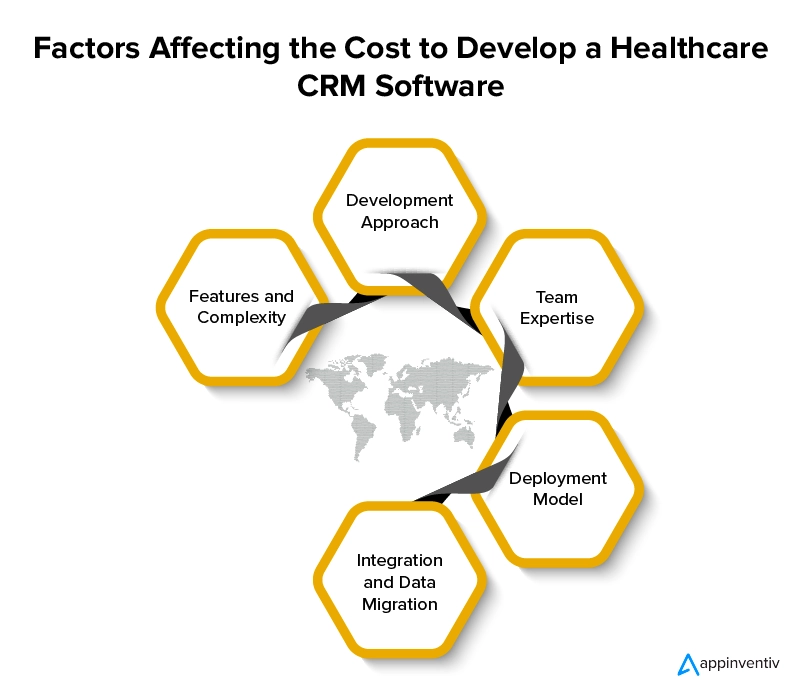
Features and Complexity: The wide range of functionalities included substantially impacts development expenses. Basic patient management tools cost less than enterprise-level solutions integrating advanced analytics, workflow automation, and seamless EHR connectivity.
Development Approach: Custom-built CRMs require substantial upfront investment but allow tailoring to specific organizational needs. This customization ensures that all specific functionalities and workflows are perfectly aligned with organizational requirements, paving the way for seamless operations.
Conversely, pre-built, off-the-shelf platforms present a more cost-efficient option but with limited customization. This limitation can lead to compromises in how well the software integrates with existing systems, potentially resulting in the need for additional efforts. Moreover, these off-the-shelf solutions may not offer the scalability required to accommodate growth or changing business needs, possibly necessitating a costly upgrade in the future.
Team Expertise: Hiring seasoned healthcare IT professionals, including project managers, business analysts, designers, developers, and quality assurance specialists, generally impact the overall cost of development. A less experienced team may offer a more economical solution, but choosing a highly experienced team ensures a higher level of expertise, efficiency, and reliability.
Deployment Model: Cloud-based Software-as-a-Service (SaaS) solutions often have lower initial costs but recurring subscription fees. On-premise deployments typically require higher upfront capital expenditure but potentially lower long-term operational expenses.
Integration and Data Migration: Integrating CRM software with existing IT infrastructure, including EHRs, billing systems, and other healthcare applications, can be very difficult, and migrating historical patient records can be extremely expensive.
It is vital to understand that actual development costs depend on your organization’s specific needs, project scope, and complexity. To get a precise estimate, it is advised to consult a reliable healthcare IT consulting company specializing in CRM solutions. They’ll assess your needs and provide a tailored cost proposal for your unique Healthcare CRM project.
How Can Appinventiv Help You Streamline Your Business Operations with a Custom CRM Software?
Healthcare mobile CRM development can benefit your healthcare business, including streamlining operations, improving patient relationships, accurate decision-making with real-time analytics, and many more. The development process we discussed ensures the successful implementation of a robust solution tailored uniquely to healthcare organizations’ needs.
By partnering with Appinventiv, a leading healthcare software development company, businesses gain access to expert craftsmanship in creating transformative CRM platforms. Our experts can help you harness the full potential of mobile CRM to not only meet but exceed the evolving demands of modern healthcare delivery. Our approach integrates seamlessly with your operations, ensuring that every facet of patient care and administrative efficiency is enhanced.
We recently developed a healthcare platform YouCOMM, that acts as an innovative multi-request platform, connecting in-hospital patients with nurses for basic needs. YouCOMM has a customizable patient messaging system that allows them to notify the staff through manual selection, voice commands, and hand gestures. The solution has been implemented across 5+ hospital chains across the US and has been able to reduce the nurses response time by 60%.
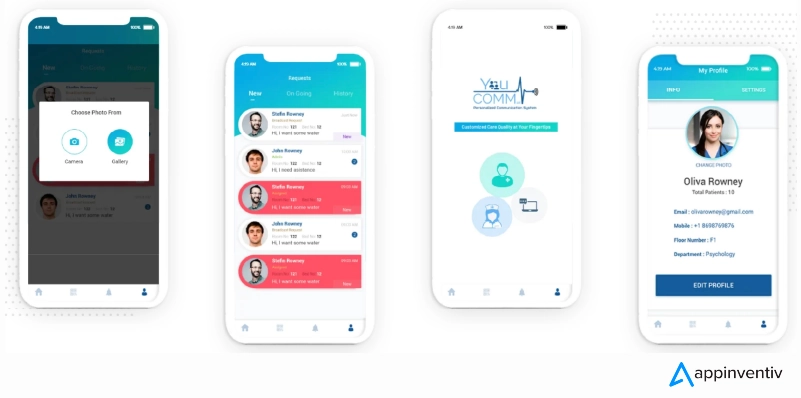
So, why wait? Contact us today for a comprehensive Healthcare CRM software development that aligns with your organization’s goals and delivers tangible results.
FAQ’s
Q. How long does it take to develop a healthcare CRM software?
A. The development duration of a custom healthcare CRM software varies based on factors like system complexity, customization needs, integration requirements, and the chosen methodology (agile or waterfall). A basic CRM can take 3-6 months, while more intricate and tailored systems may require a year or longer.
Q. How much does it cost to develop a custom healthcare CRM software?
A. As revealed earlier, the cost to develop a custom healthcare CRM software can vary from $40,000 to $250,000. There are several factors that impact the development budget directly, such as the location of the hired software development team, overall software complexity, features to be integrated in the software, etc. it is advised to partner with a dedicated healthcare app development firm to get clear cost estimates based on your custom business requirements.
Q. How can healthcare CRM software improve patient engagement?
A. The CRM software for the healthcare industry empowers patients by offering personalized communication, appointment reminders, access to medical records/test results, educational resources, and secure provider messaging. This improved convenience and communication fosters active patient participation and health management.
Q. What security measures are necessary during healthcare CRM software development?
A. Protecting sensitive patient information is crucial in healthcare CRM software development. Key measures include implementing robust encryption protocols for data both at rest and in transit, to protect against unauthorized access. Role-based access controls are crucial, allowing only authorized personnel to access specific data. Conducting regular security assessments helps identify and mitigate vulnerabilities.
Compliance with healthcare regulations, such as HIPAA, is essential to meet legal standards. Additionally, educating staff on security best practices raises awareness and strengthens the overall defense. Strong authentication mechanisms are also necessary to verify user identities accurately.

THE AUTHOR
Dileep Gupta
DIRECTOR & CO-FOUNDER



